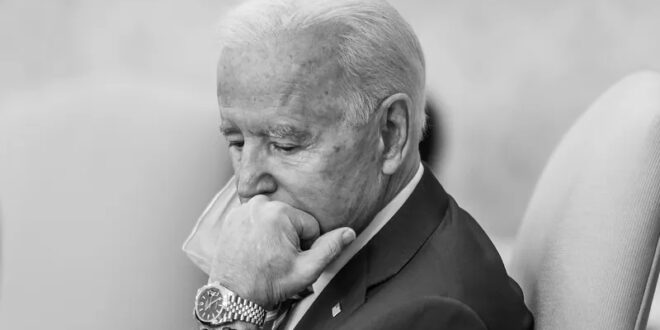US President Joe Biden is scheduled to host the first (virtual) edition of ‘The Summit for Democracy’ on 9-10 December 2021. This will be followed by year-long initiatives leading to an in-person summit in 2022. According to the State Department, the summit aims to bring together leaders from government, civil society, and the private sector to “solicit bold, practicable ideas around three key themes: defending against authoritarianism; addressing and fighting corruption; promoting respect for human rights.”
This article looks at the summit’s rationale, potential irritants, and the road ahead.
Rationale
Biden’s presidential campaign promised ‘The Summit for Democracy’ in his first year of office. The rationale for organising the summit was to “reinvigorate our own democracy and strengthen the coalition of democracies that stand with us.” This promise and the rest of the text showcase his interest in course correction and cooperation.
The need for course correction arose as the US’ democratic core weakened and faced heightened criticism during President Trump’s era. Biden’s campaign manifesto highlighted this by calling out Trump’s “erratic policies and failure to uphold basic democratic principles,” which arguably weakened US’ position and alliances in the world. The manifesto included the terms “reinvigorate,” “restore,” and “renew” in the context of democracy and American leadership, further emphasising a future Biden administration’s acceptance of and will for course correction. While domestic course correction in the US is a work-in-progress, the administration has moved towards international cooperation on democracy through this summit.
Cooperation is a key summit highlight as US democracy promotion has always been viewed from a hegemonic lens. The Biden administration seems to be attempting a newer approach at a time when its global standing is facing serious headwinds: in the face of China’s rise and its botched withdrawal from Afghanistan. Biden’s foreign policy vision reflects this weakening of the US position as it pledges to take immediate steps to “once more place America at the head of the table leading the world to address the most urgent global challenges.”
Potential Irritants
On 24 November, the State Department released a list of 110 countries invited for the summit. While some non-invitees aren’t a surprise—such as China, Russia, and Turkey—there are some curious omissions, especially from South Asia: Bangladesh, Bhutan, and Sri Lanka. Interestingly, all three countries are noted as ‘democracies’ by the State Department: Bangladesh as a parliamentary democracy; Bhutan as a democratic, constitutional monarchy; Sri Lanka as a constitutional, multiparty democratic republic.
This raises a critical question about the parameters set by Washington for its summit invite list. An FAQ explains that the US seeks to engage “any and all countries that show a genuine willingness in making commitments that support the Summit’s goals.” However, pre-determining state willingness and other such stringent parameters seem counterproductive to the summit’s central tenet: cooperation. In fact Biden in a statement on the International Day of Democracy said that “No democracy is perfect, and no democracy is ever final.”
While the themes for the summit are laid out, what the US hopes to achieve through it, and its barometer to gauge success or failure, remain unclear. Unlike the UN Climate Change Conference summits whose outcomes are somewhat quantifiable, the democracy summit appears to lean towards a more qualitative approach. Given the theme’s subjective nature, establishing a universally acknowledged barometer will be impossible.
Looking Ahead
While this attempt by the Biden administration shows a renewed interest in democracy promotion, it will have to consciously steer away from hegemonic practices and address perception issues. A symbolic step would have been to collaborate with a non-Western democracy (such as India or Indonesia) in organising the summit. Going forward, inviting the so far uninvited and encouraging non-western democracies to host future iterations in collaboration with the US could be prudent moves.
The State Department’s website has published a list of ‘Host-Sponsored Events’ that are scheduled to take place in the lead-up to the leaders’ summit. Various topics such as legislative practices, authoritarianism, gender, disability, disinformation, and technology, among others, have been proposed. Going beyond just electoral practices and covering a gamut of issues under the broad umbrella of democracy is a welcome initiative. It also makes for good summit optics. Ultimately, however, it is the commitments that are agreed upon at the end of the summit (if any), and how they are followed up on, that will give a clearer idea about the summit’s impact.
What is also expected—and has already begun—is a backlash from some uninvited countries. The Chinese and Russian ambassadors to the US have jointly raised the concern that the summit “will stoke up ideological confrontation and a rift in the world, creating new dividing lines.” It is to be seen whether other such non-invitees also raise red flags.
Biden’s ‘Summit for Democracy’ hasn’t been able to make all the right noises—yet. The US’ history of democracy promotion, puzzling decision to not invite certain democratic countries, and lack of clarity regarding summit objectives raise important questions. While the broader rationale for hosting the summit may be clear, a more concrete set of expected outcomes and conscious effort to de-Westernise the concept and the summit, will be vital for its success.
 Eurasia Press & News
Eurasia Press & News




